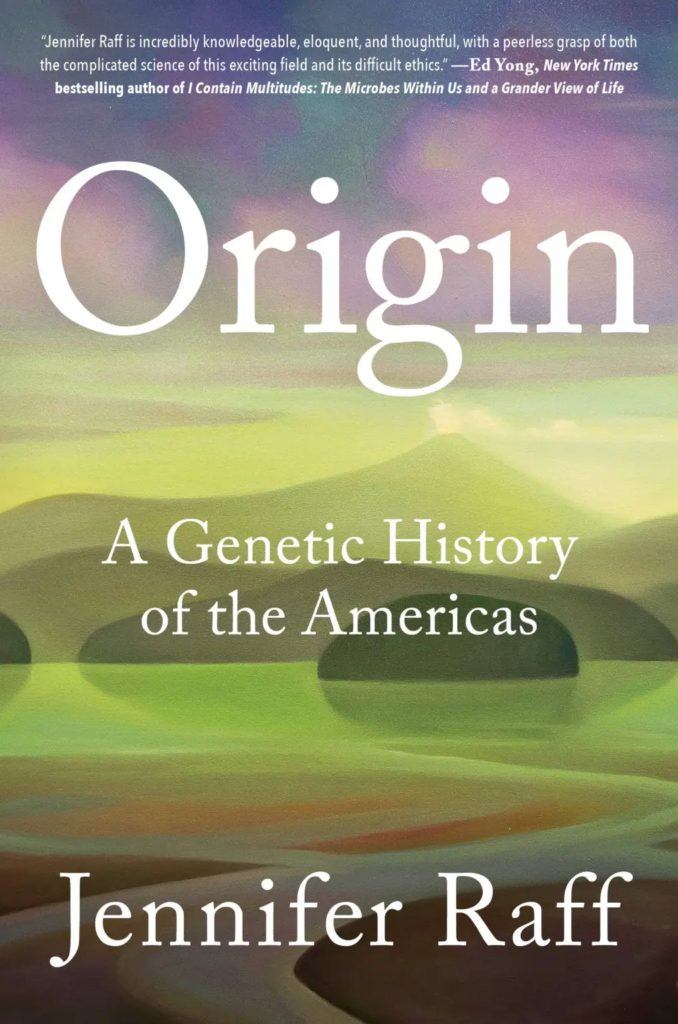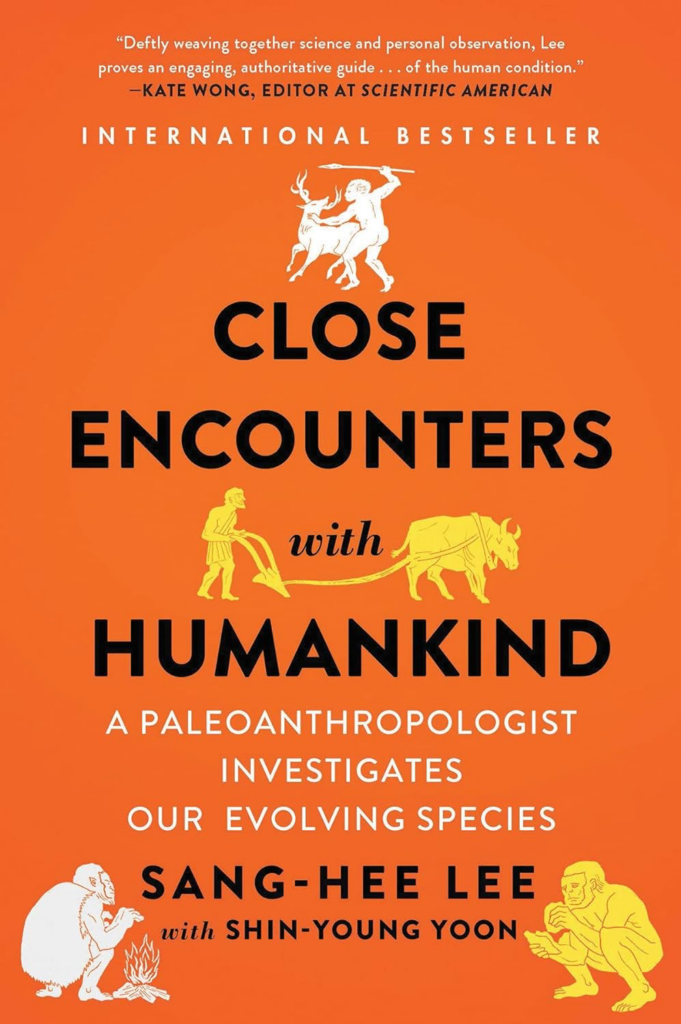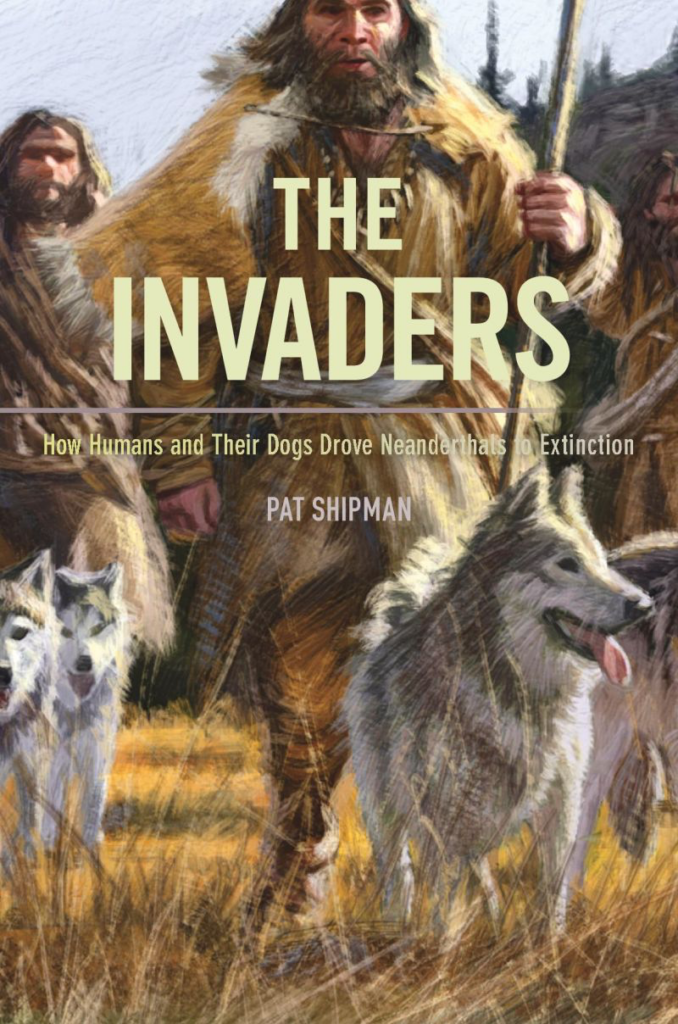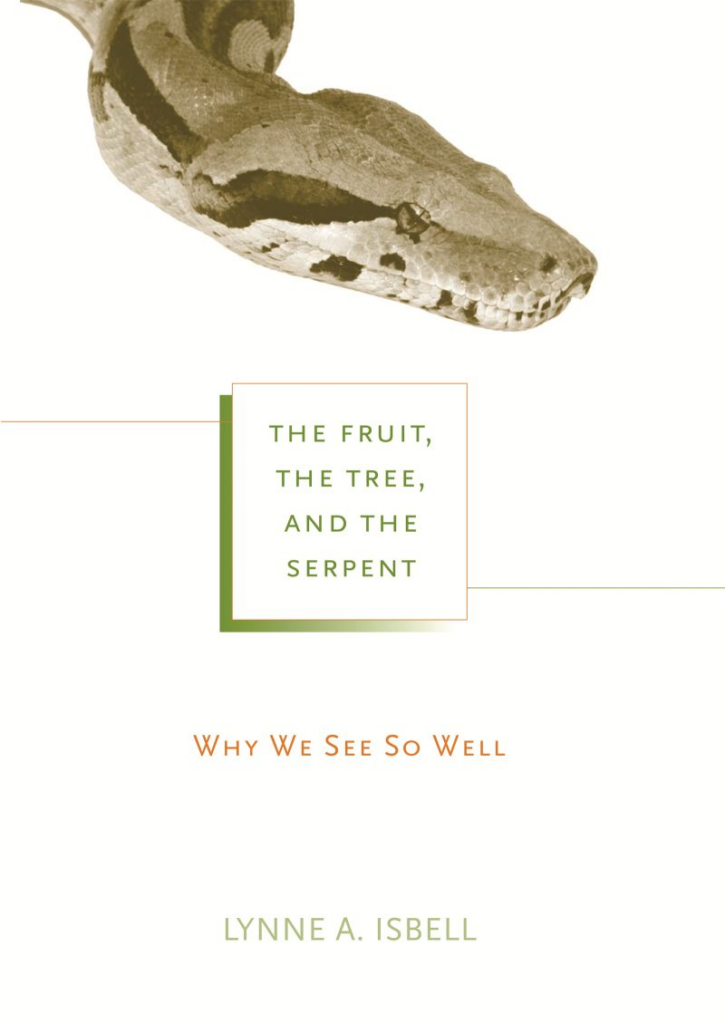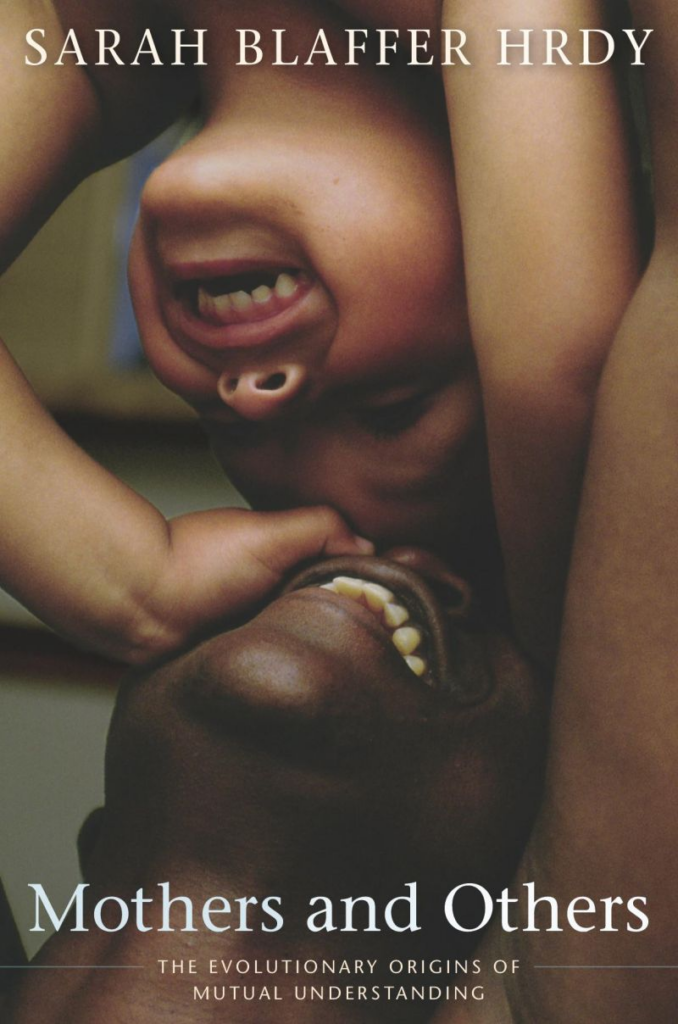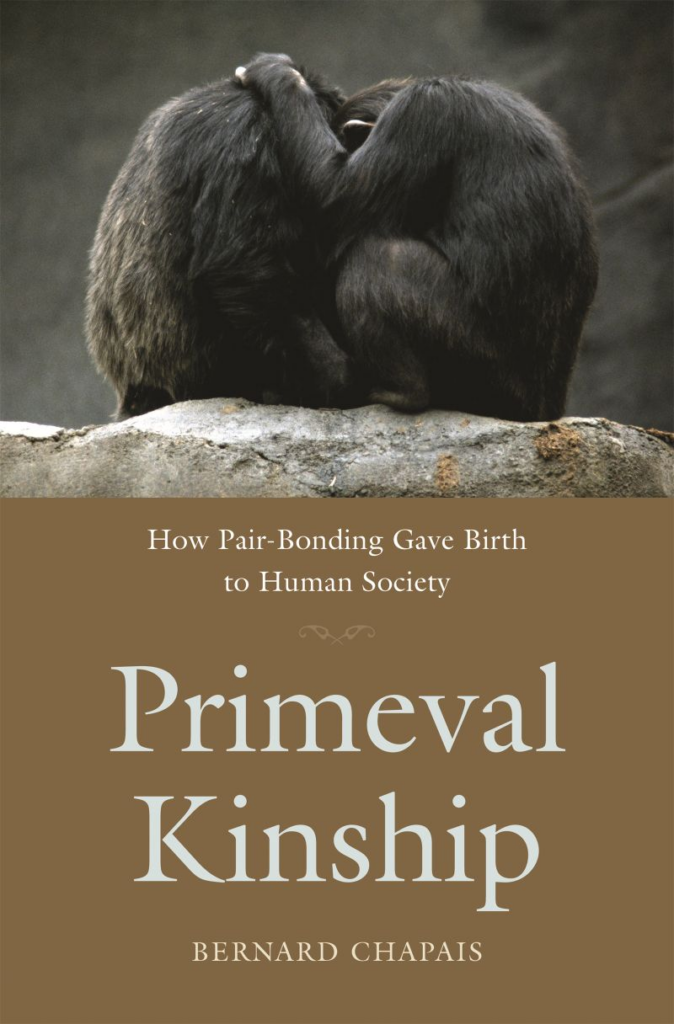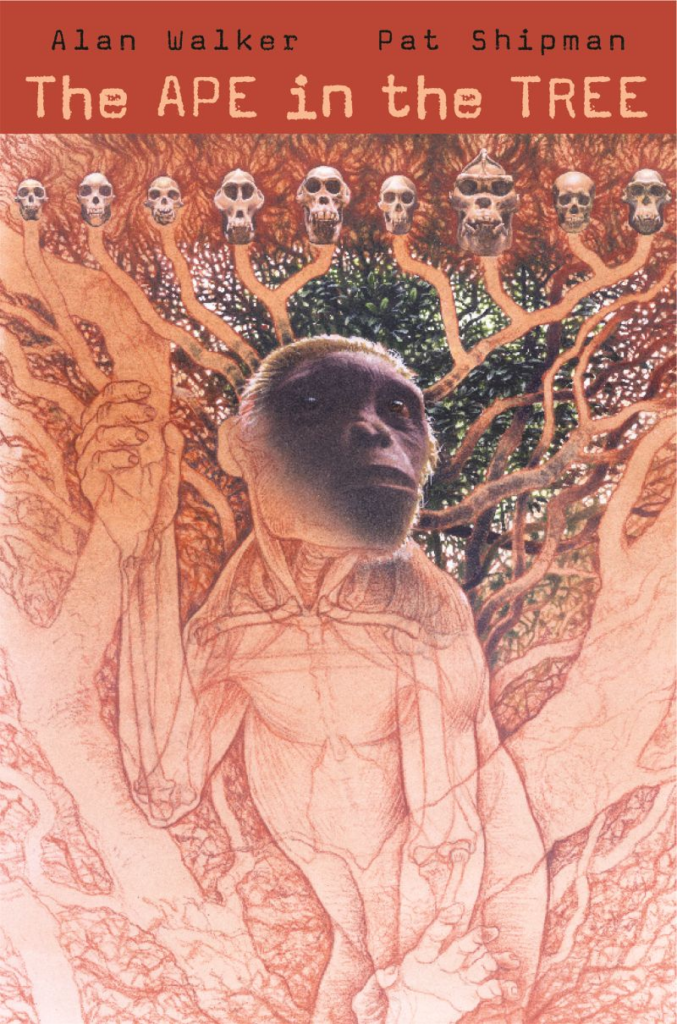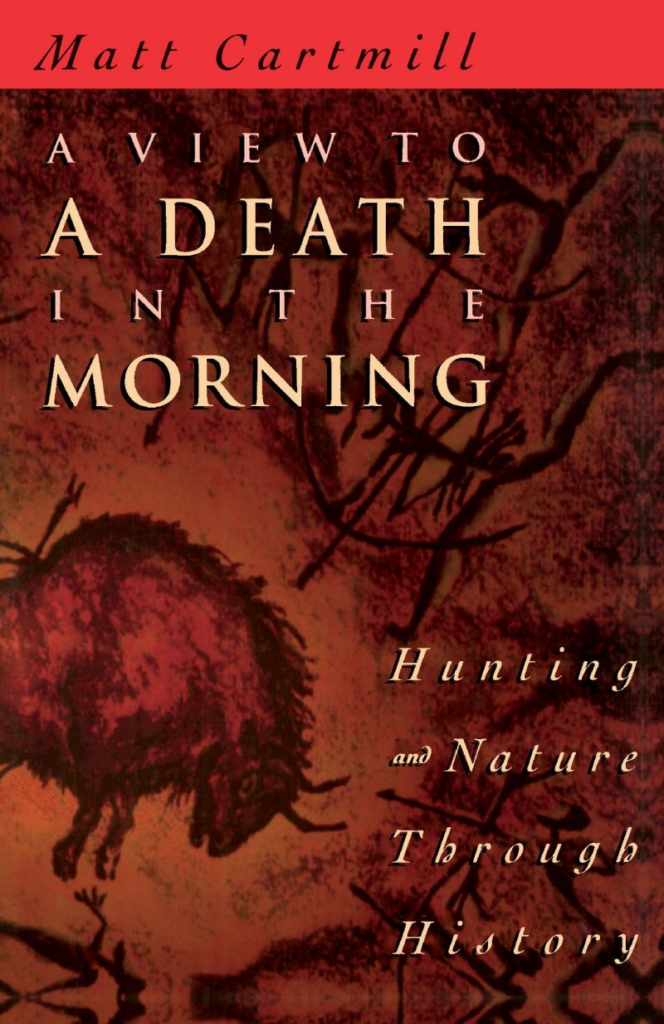We are currently updating this page. In the meantime, please direct all book related queries to Professor Karen Rosenberg. krr@udel.edu
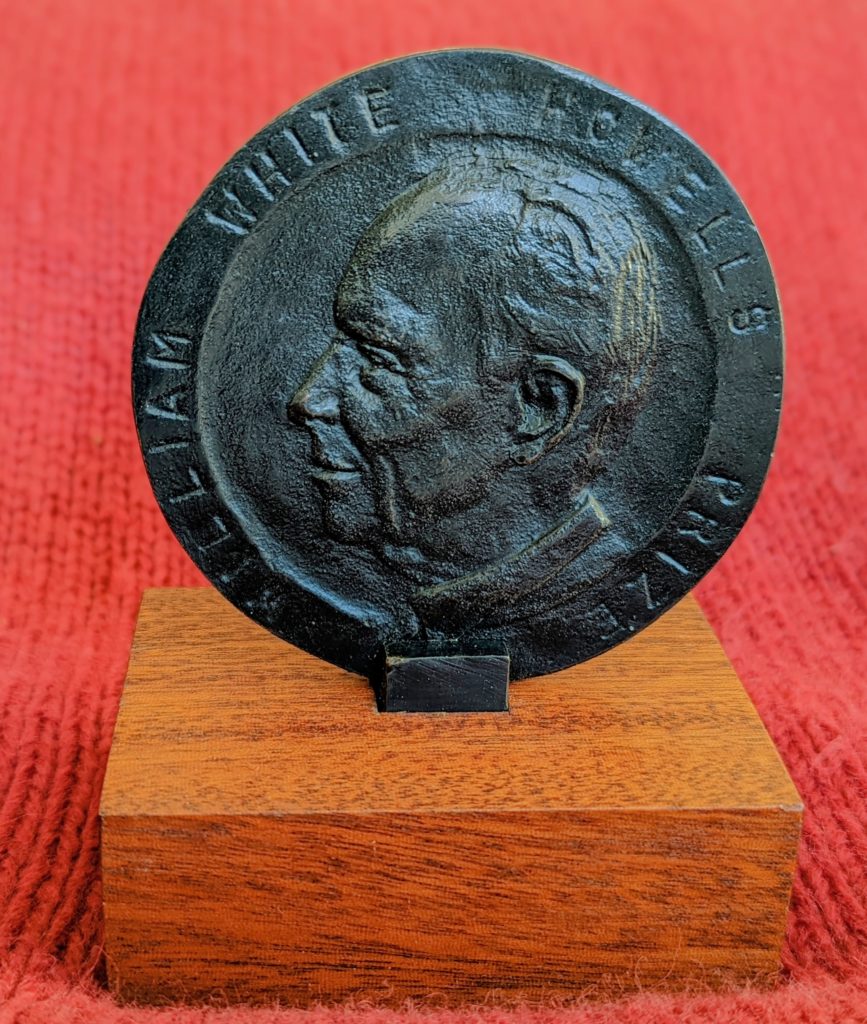
Nominate a book
The BAS strongly encourages nominations of books for the W.W. Howells Book Award in Biological Anthropology. The Howells Award was inaugurated in 1993 in honor of professor emeritus William White Howells of the Peabody Museum (Harvard). Howells is a past president of the American Anthropological Association and a distinguished scholar who has published several landmark books in physical anthropology.
The award is given by the Biological Anthropology Section of the AAA to honor a book in the area of biological anthropology. Books may be single or multiply-authored, but not edited. They should have been published within the last 3-4 years, and once nominated will remain on the list for 3-5 years depending on their date of publication. Nominated works should represent the highest standard of scholarship and readability. They should inform a wider audience of the significance of physical or biological anthropology in the social and biological sciences, and demonstrate a biocultural perspective.
To nominate someone for the book award
Please send your nominating letters and either copies of or references to published reviews to Professor Karen Rosenberg, Chair of the W.W. Howells Book Award Committee. Nominations must be received by February 1 to be considered in that year.
History & How to Donate to the Howells Fund
The W.W. Howells Prize was established in 1993 to honor William White Howells, then emeritus professor of anthropology at Harvard University. The prize is in recognition of the important contributions Professor Howells made to biological anthropology and anthropology in general. He served as President of the American Anthropological Association (1951) and as Editor of the American Journal of Physical Anthropology (1949-1954) and received the American Anthropological Association Distinguished Service Award (1978) and the American Association of Physical Anthropologists Darwin Award (1992). Professor Howells was an outstanding mentor to graduate and undergraduate students and a dedicated scholar who excelled at introducing the public to biological anthropology. One of the intents of the Howells Prize is to encourage a high standard of writing and scholarship as exemplified by Professsor Howells’ work; thus the award is presented to books that represent the highest standard of scholarship and readability and that inform a wider audience of the significance of biological anthropology.
To our knowledge the Howells Prize is the only award that specifically honors books in biological anthropology. As such it is a unique opportunity to recognize the exceptional work of our colleagues.
Funding for the W.W. Howells Award
The W.W. Howells Award is supported by income from an endowment to the American Anthropological Association for the purpose of this award. However, this income has been reduced by recent low interest rates which threaten the long-term viability of the award. The Biological Anthropology Section of the AAA is undertaking this fundraising drive to increase the Howells Endowment Fund so that we can better honor both the memory of an eminent biological anthropologist and the outstanding work that biological anthropologists are doing today. Our goal in this drive is to raise $10,000, all of which will be added to the fund, to increase the income it generates. Your generous donation will help us reach this goal. Checks for contributions should be made out to the American Anthropological Association with the notation Howells Fund in the memo line. Contributions should be sent to the Howells Award, American Anthropological Association, 2300 Clarendon Blvd., Suite 1301, Arlington, VA 22201.
To donate
You can make a donation by [2022 note: stay tuned for a pdf form to be hyperlinked here].
The AAA is a non-profit 501(c) (3) organization and your gift may be tax deductible according to law. Please consult your personal tax advisor for appropriate deductibility. FEIN 53-0246691
Previous Winners
2024
Joseph L. Graves Jr and Alan H. Goodman
Racism, Not Race: Answers to Frequently Asked Questions
Columbia University Press. 2021.
“In Racism, Not Race, Graves and Goodman lay out comprehensively and accessibly why notions of race are social constructs that cannot be justified in biological terms. Packed with contemporary and historical references that place race in perspective, this is an authoritative clarification of an issue that is critically important for society but is widely misunderstood despite its ever more pressing ramifications. A valuable resource.”
– Ian Tattersall, author of Troublesome Science: The Misuse of Genetics and Genomics in Understanding Race
2023
Kate Clancy
Period: The Real Story of Menstruation
Princeton University Press. 2023.
“This book is a revelation. Kate Clancy demolishes the centuries of pseudoscience and misogyny that have wrongly made menstruation seem repulsive, and replaces them with a far more rigorous and fascinating view of this vital and nigh-miraculous act. Period is both an authoritative work of scholarship and a soaring, hopeful manifesto for a better culture and a more just science.”
– Ed Yong, Pulitzer Prize-winning author of An Immense World
2022
Jennifer Raff
Origin: A Genetic History of the Americas
Twelve. 2022.
“Social and genetic history cannot be disentangled. ORIGIN also highlights the colonizers’ evolving cultural myths that shape and are shaped by their science. This is a valuable read for consumers of popular genetics who are not aware how much science is built on colonial theft, and how Indigenous peoples push back to improve science.”
– Dr. Kim TallBear (Sisseton-Wahpeton Oyate), Professor, Faculty of Native Studies University of Alberta, Canadian Research Chair in Indigenous Peoples, Technoscience, and Society
2021
Jeremy DeSilva
First Steps: How Upright Walking Made Us Human
Harper. 2021.
“A book that strides confidently across this complex terrain, laying out what we know about how walking works, who started doing it and when. DeSilva proposes that our bipedalism is at the root of our uniqueness as a species, and the book is carefully structured, neatly braiding his own research with the wider narrative and history of human evolution. . . . DeSilva is a genial companion on this stroll through the deep origins of walking.”
– New York Times Book Review
2020
(no prize awarded due to COVID-19)
2019
Richard Bribiescas
How Men Age: What Evolution Reveals about Male Health and Mortality
Princeton University Press. 2017.
“…a wise, thoughtful, and provocative book that everyone should read—women and men alike. Bribiescas eloquently explains how and why men mature and die, drawing on evolutionary theory, endocrinology, anthropology, genetics, and more. His insights will change how you think about human life—including your own.”
–Daniel E. Lieberman, author of The Story of the Human Body: Evolution, Health, and Disease
2018
Sang-hee Lee (with Shin-Young Yoon)
Close Encounters with Humankind: A Paleoanthropologist Investigates our Evolving Species
WW Norton. 2018.“Humans walk upright, possess giant brains, have nearly hairless skin, and live exceptionally long lives. How did we come to be such peculiar primates? Sang-Hee Lee tackles this question with aplomb. Deftly weaving together science and personal observation, Lee proves an engaging, authoritative guide on this nickel tour of the human condition.
“
– Kate Wong , Scientific American
2017
Pat Shipman
The Invaders: How Humans and Their Dogs Drove Neanderthals To Extinction
Belknap Press. 2017.
“Are humans the ultimate invasive species? So contends anthropologist Pat Shipman—and Neanderthals, she opines, were among our first victims. The relationship between Homo sapiens and Homo neanderthalensis is laid out cleanly, along with genetic and other evidence. Shipman posits provocatively that the deciding factor in the triumph of our ancestors was the domestication of wolves.”
-Daniel Cressey, Nature
2016
Augustin Fuentes
Race, Monogamy, and Other Lies They Told You: Busting Myths about Human Nature
University of California Press. 2015.
“There are three major myths of human nature: humans are divided into biological races; humans are naturally aggressive; men and women are truly different in behavior, desires, and wiring. In an engaging and wide-ranging narrative Agustín Fuentes counters these pervasive and pernicious myths about human behavior. Tackling misconceptions about what race, aggression, and sex really mean for humans, Fuentes incorporates an accessible understanding of culture, genetics, and evolution requiring us to dispose of notions of “nature or nurture.” Presenting scientific evidence from diverse fields, including anthropology, biology, and psychology, Fuentes devises a myth-busting toolkit to dismantle persistent fallacies about the validity of biological races, the innateness of aggression and violence, and the nature of monogamy and differences between the sexes. A final chapter plus an appendix provide a set of take-home points on how readers can myth-bust on their own. Accessible, compelling, and original, this book is a rich and nuanced account of how nature, culture, experience, and choice interact to influence human behavior.” Source
2015
John S. Allen
The Omnivorous Mind: Our Evolving Relationship With Food
Harvard University Press. 2012.
“Whether we’re obsessing over intricate recipes or daydreaming about chocolate, our minds are often focused on food…Allen uses this mental gustation as a lens on our biological and cultural past, through anthropology, food history and the experience of chefs. The result is a banquet. Ranging over food cravings and aversions, cultural preferences and diets, he serves up plenty of amuse-bouches, not least an unusual take on the global love for the crispy and crunchy”
-Nature
2014
Lynne A. Isbell
The Fruit, the Tree, and the Serpent: Why We See So Well.
Harvard University Press. 2009.
“The anthropologist and animal behaviorist Lynne Isbell elegantly posits here that the human facility with language evolved largely thanks to snakes. Coolly testing hypotheses and assessing evidence across an impressive range of disciplines—neuroscience, primate behavior, paleogeography, molecular biology, and genetics—she argues that our distant primate relatives developed their exceptional ability to see and identify ‘objects that were close by and in front of them’ in order to detect and avoid what was almost certainly their most dangerous predator—the snake… And so, Isbell avers, Genesis has it right: the snake made us human.” – From the review in The Atlantic
2013

Alan G. Morris
Missing & Murdered: A Personal Adventure in Forensic Anthropology.
Zebra Press. 2012.
“a fascinating introduction to old, and not so old, bones.” – Kathy Reichs, best selling author, professor of anthropology and executive producer for the TV series, Bones.
2012
Sarah Blaffer Hrdy
Mothers and Others: The Evolutionary Origins of Mutual Understanding.
The Belknap Press of Harvard University Press. 2009.
“In the study of mothering, Sarah Hrdy has no peer. In Mothers and Others, we are treated to Hrdy’s infectious writing, taking the reader on a tour of our evolved history as a cooperatively parenting species. The ideas are big, bold, and brain-bending.”
-Marc Hauser
2011
Wenda Trevathan
Ancient Bodies, Modern Lives: How Evolution Has Shaped Women’s Health.
Oxford University Press. 2010.
“The casual but scientifically assertive tone of this book renders it particularly useful for students and novices in the field of evolutionary biology and anthropology. The author tackles complex concepts by providing basic theoretical foundations, followed by discussions of the issues, and, on occasion, a suggested ‘solution’. A well-reasoned balance is achieved between scientific and social complexity and the ‘bigger picture’.” – Anne L. Grauer, Department of Anthropology, Loyola University Chicago
2010
Bernard Chapais
Primeval Kinship: How Pair-Bonding Gave Birth to Human Society.
Harvard University Press. 2008.
“Primeval Kinship is a treasure chest of comparative research on human and primate social structure, organization, and behavior. This book will reignite and reinvigorate discussions of the evolution of primate and human society. It will be a model from which future social and physical anthropologists, primatologists, and social scientists can build.” –Robert Wald Sussman, Professor of Anthropology and Environmental Sciences, Washington University in St. Louis
2009
Alan Walker and Pat Shipman
The Ape in the Tree: An Intellectual and Natural History of Proconsul.
Harvard University Press. 2005.
Proconsul lays claim to being the best known ape in the fossil record and Alan Walker and Pat Shipman tell the story of this prized fossil superbly well. Wonderfully engaging and insightful, The Ape in the Tree is sure to become a classic in the literature on human origins. —Roger Lewin, author of Principles of Human Evolution
From Robert Proctor’s Science book review: “The Ape in the Tree is a fine account of new ways to puzzle out the behaviors of fossilized animals from odd scraps of bones.” –Carel van Schaik and Perry van Duijnhoven
2008
Carel van Schaik
Among Orangutans: Red Apes and the Rise of Human Culture.
The Belknap Press of Harvard University Press. 2004
From Scientific American review: In this book, Carel van Schaik, a highly regarded Dutch primatologist now at Duke University, concludes that “intelligence is … socially constructed during development.” This won’t surprise you–until you realize that he is referring not to humans but to orangutans, the large red apes of south Asia.
2007
Nina Jablonski
Skin: A Natural History.
University of California Press. 2006.
“Biology is a historical science. Ask a ‘why?’ question about biology, as Nina Jablonski keeps doing in her book Skin, and you invite an evolutionary answer. She also tells us everything we might want to know about skin; perhaps more than some people want to know.” —Nature
2006
Donna L. Hart and Robert W. Sussman
Man the Hunted: Primates, Predators and Human Evolution
Westview Press (Perseus Book Group). 2005.
(Expanded 2009 edition available for purchase through Routledge)
This book dispels the myth of “man the hunter” and replaces it with the theory and supporting evidence that early hominini were very vulnerable to predation.
“Contrary to the familiar image of the aggressive, spear-wielding ‘caveman,’ our hominid ancestors were more hunted than hunters, more preyed upon than slayers of large predators, contend wildlife conservationist Hart and anthropologist Sussman…Some readers may raise an eyebrow at the suggestion that our predilection for a beautiful scenic view evolved from our ancestors’ scanning the African grasslands for danger, but the authors’ novel proposals merit serious consideration.” —from Publisher’s Weekly
2005
Christopher Beard
The Hunt for the Dawn Monkey: Unearthing the Origins of Monkeys, Apes and Humans.
University of California Press. 2004.
Beard’s discovery in China of the earliest known primates is reshaping critical debates about the geographic origins of anthropoids and humans. Among his many accomplishments, Dr. Beard was a recipient of a MacArthur “Genius” award in 2000.
“An entertaining, erudite, and informative narrative. . . . Beard parlays his formidable knowledge, experience, and energy into an exciting, thoughtful, integrative, and well-written book.”— Evolutionary Anthropology: Issues, News, Reviews
2004
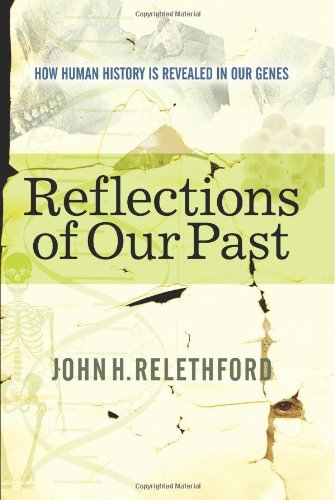
John Relethford
Reflections of Our Past : How Human History is Revealed in Our Genes.
Westview Press. 2003.
(Second edition, co-written with Deborah Bolnick, was updated and published in 2018. It is available from Routlege)
“An important contribution to the literature on human origins.” – Booklist
2003
Jonathan Marks
What It Means to be 98% Chimpanzee: Apes, People, and Their Genes.
University of California Press. 2002.
“A trenchant assault on genetic reductionism and a spirited call for a more critical science…” – American Scientist
2002

Kenneth A. R. Kennedy
God-Apes and Fossil Men Paleoanthropology of South Asia.
University of Michigan Press. 2000.
“Kennedy shines in his detailed discussion of the history of race and the traditional three races of India… I would consider this book a must for all anthropologists with an interest in Asia and the roots of European civilization.” – Donald Tyler, American Journal of Human Biology, Volume 13, No. 6
2000
Sarah Hrdy
Mother Nature: Maternal Instincts and How They Shape the Human Species.
Pantheon. 1999.
“Mother Nature is a stunning achievement. The book reveals the highest scholarship with an unparalleled breadth in the use of the comparative method. Hrdy expertly uses the comparative method. Hrdy expertly uses the comparative method to illustrate her points by contrasting biology and behavior across species and orders, and by making full use of human variation both through evolutionary and historical time and across space and cultures. This book is a very accessible, scientific discussion of the evolutionary history of maternal care written by a first rate scientist.” – Jane B. Lancaster, Editor of Human Nature
1998
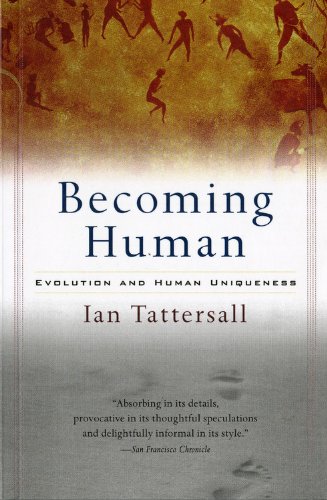
Ian Tattersall
Becoming Human: Evolution and Human Uniqueness.
Harcourt Brace. 1998.
“Since Darwin wrote The Descent of Man in 1871, many evolutionary constructions have been conceived, usually bearing the features of their cultural and social contexts. With Ian Tattersall’s smoothly developed argument about the evolution of distinctively human nature, cultural belief plays a decisive role.” – The New York Times Book Review, Robert J. Richards
1997
Milford Wolpoff and Rachel Caspari
Race and Human Evolution: A Fatal Attraction.
Simon & Schuster. 1997.
The authors of Race and Human Evolution are ardent multiregionalists, and their book is the first comprehensive exposition of that theory for a general audience… a spirited book, at times personal and combative, always earnest and thorough. They leave no doubt where they stand: “We predict we will never find a cradle of modern humanity, because a single source for modern humans does not exist.” – The New York Times Book Review, John Noble Wilford
1994
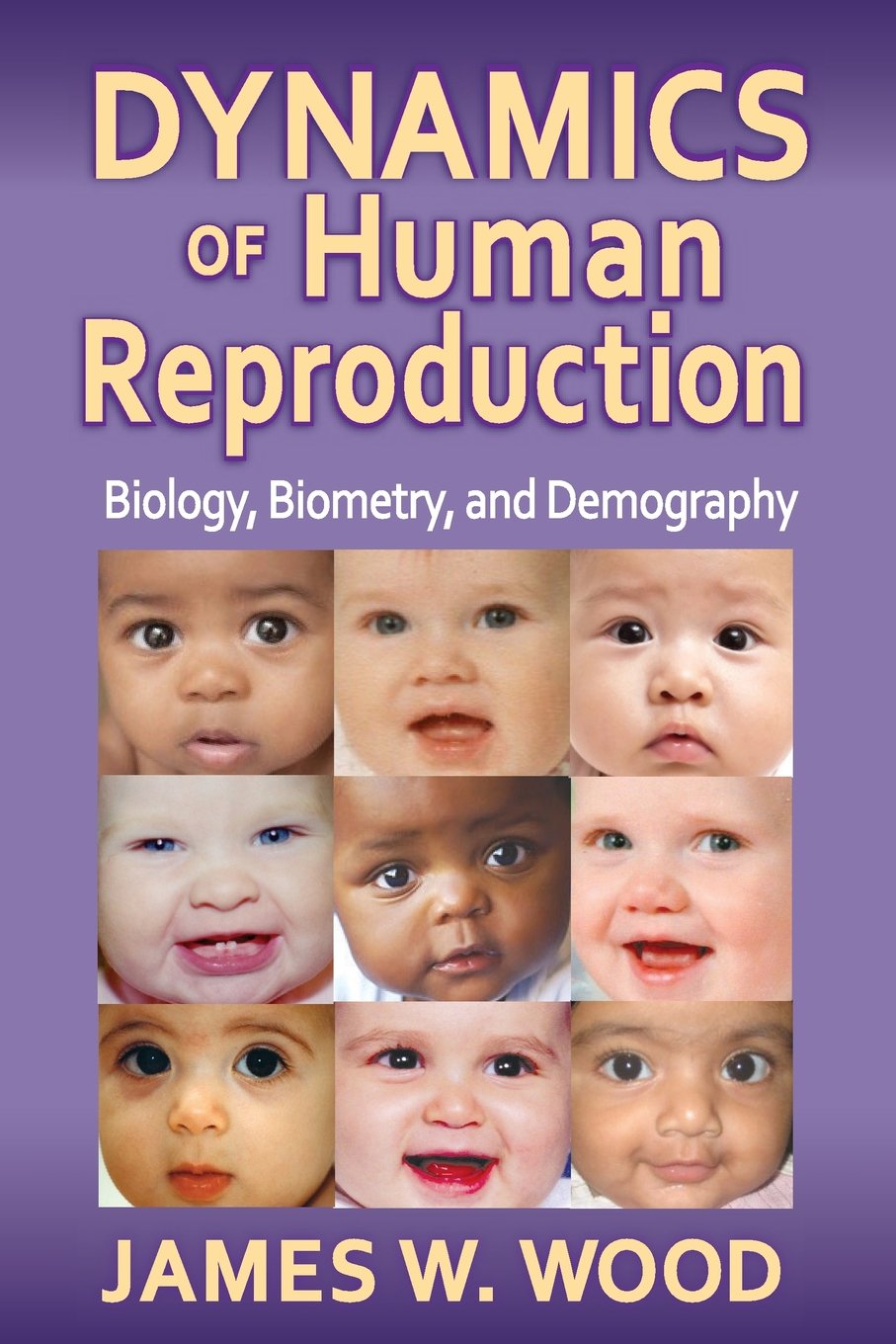
James W. Wood
Dynamics of Human Reproduction: Biology, Biometry, and Demography.
Aldine de Gruyter. 1994.
(now available from Routlege)
“A ‘must-have’ reference text for any researcher interested in the biocultural determinants of human fertility and is appropriate as a textbook at the graduate level. I expect it to remain a standard in the literature of demographic anthropology and reproductive ecology for many years to come.” – American Journal of Physical Anthropology
1993
Matt Cartmill
A View to a Death in the Morning: Hunting and Nature through History.
Harvard University Press. 1993.
“This book is an elegant, erudite, stimulating essay on the history of Western ideas about humans and nature.” – Adam Kuper, Nature
1992
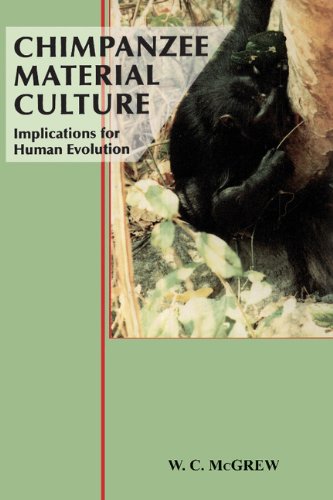
William McGrew
Chimpanzee Material Culture: Implications for Human Evolution.
Cambridge University Press. 1992.
“…an important contribution both to our understanding of chimpanzee behavior (it provides the first critical synthesis of a widely scattered literature of very variable quality) and to our understanding of the process of hominization. It will be particularly valuable if it persuades social scientists to take the work of primatologists and other animal biologists more seriously.” – R.I.M. Dunbar, Nature
1990
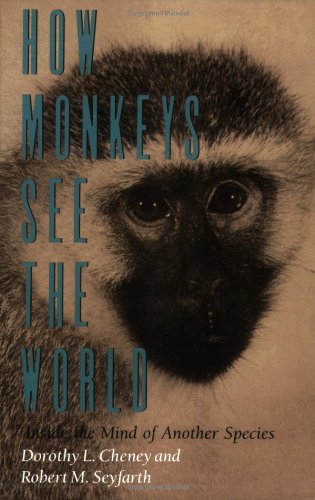
Dorothy Cheney and Robert Seyfarth
How Monkeys See the World: Inside the Mind of Another Species.
University of Chicago Press. 1990.
“A fascinating intellectual odyssey and a superb summary of where science stands.” – Geoffrey Cowley, Newsweek


